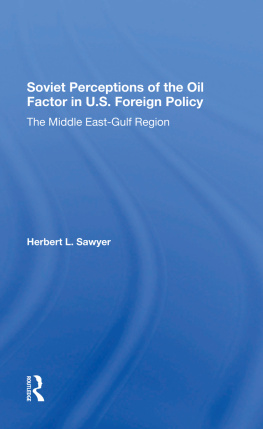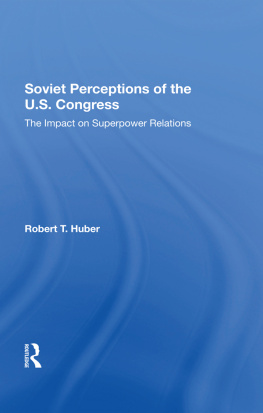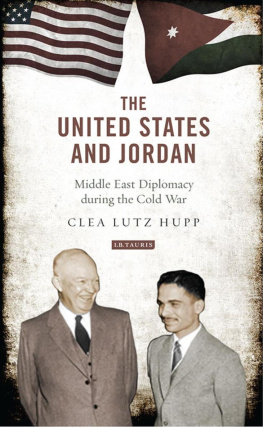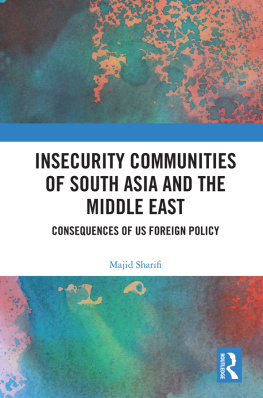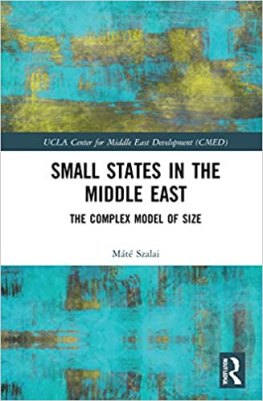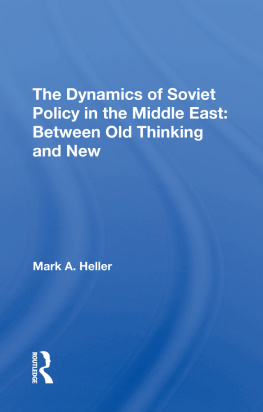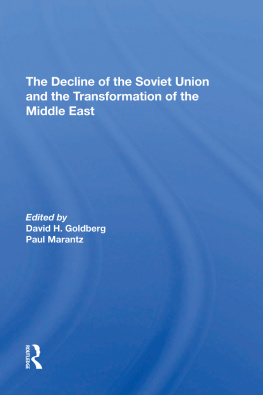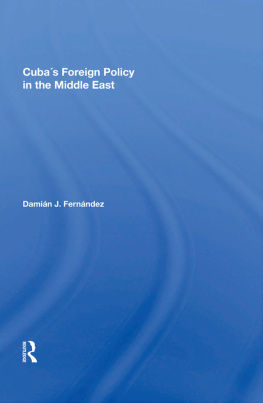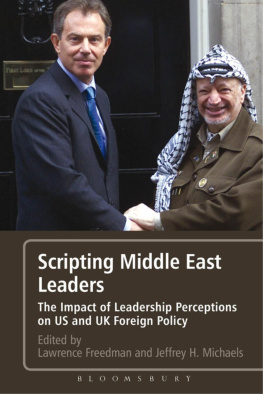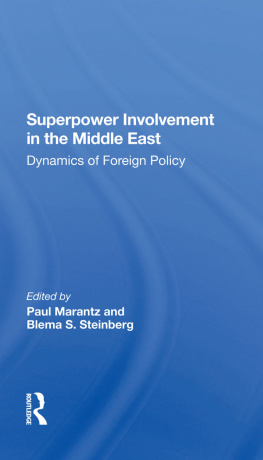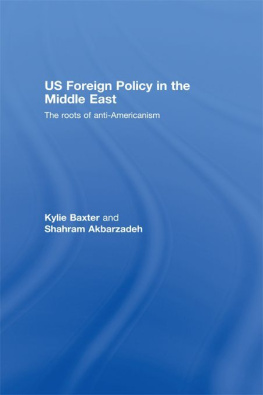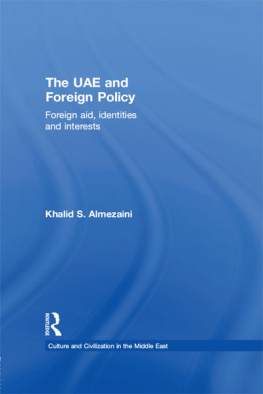Soviet Perceptions of the Oil Factor in U.S. Foreign Policy
Westview Replica Editions
The concept of Westview Replica Editions is a response to the continuing crisis in academic and informational publishing. Library budgets for books have been severely curtailed. Ever larger portions of general library budgets are being diverted from the purchase of books and used for data banks, computers, micromedia, and other methods of information retrieval. Interlibrary loan structures further reduce the edition sizes required to satisfy the needs of the scholarly community. Economic pressures on the university presses and the few private scholarly publishing companies have severely limited the capacity of the industry to properly serve the academic and research communities. As a result, many manuscripts dealing with important subjects, often representing the highest level of scholarship, are no longer economically viable publishing projects--or, if accepted for publication, are typically subject to lead times ranging from one to three years.
Westview Replica Editions are our practical solution to the problem. We accept a manuscript in camera ready form, typed according to our specifications, and move it immediately into the production process. As always, the selection criteria include the importance of the subject, the work's contribution to scholarship, and its insight, originality of thought, and excellence of exposition. The responsibility for editing and proofreading lies with the author or sponsoring institution. We prepare chapter headings and display pages, file for copyright, and obtain Library of Congress Cataloging in Publication Data. A detailed manual contains simple instructions for preparing the final typescript, and our editorial staff is always available to answer questions.
The end result is a book printed on acid-free paper and bound in sturdy library-quality soft covers. We manufacture these books ourselves using equipment that does not require a lengthy make-ready process and that allows us to publish first editions of 300 to 600 copies and to reprint even smaller quantities as needed. Thus, we can produce Replica Editions quickly and can keep even very specialized books in print as long as there is a demand for them.
About the Book and Author
Soviet Perceptions of the Oil Factor in U.S. Foreign Policy: The Middle East-Gulf Region
Herbert L. Sawyer
How Soviet leaders perceive U.S. intentions, capabilities, and actions plays an important role in the formation of the Soviet Union's foreign policy and its relations with the United States. This book focuses on one set of Soviet perceptions--how the oil shortages and subsequent developments influenced U.S. policy in the Middle East-Gulf region, and what the implications of that policy are for the Soviet Union.
Although the 1973 energy crisis and related events all represented severe blows to Washington, there were costs for Moscow as well; negative developments for one superpower, says Dr. Sawyer, do not necessarily result in unadulterated gains for the other. Emphasizing this theme, he assesses Soviet perceptions of the 1973 energy crisis and the intensification of U.S. interest in the Middle East-Gulf region; the Camp David accords and the Egyptian-Israeli Treaty; the impact of the Iranian revolution on U.S. and Soviet positions in the region; the effect of the Soviet invasion of Afganistan on U.S. policy; the Iraqi-Iranian war; and the Soviet response to Washington's concern over U.S. energy vulnerability.
Herbert L. Sawyer is professor of government at Bentley College and a fellow of the Harvard Russian Research Center.
To Sonja
Who pointed the way and
made the journey possible
Soviet Perceptions of the Oil Factor in U.S. Foreign Policy
The Middle East-Gulf Region
Herbert L. Sawyer
First published 1983 by Westview Press
Published 2019 by Routledge
52 Vanderbilt Avenue, New York, NY 10017
2 Park Square, Milton Park, Abingdon, Oxon OX14 4RN
Routledge is an imprint of the Taylor & Francis Group, an informa business
Copyright 1983 by Taylor & Francis
All rights reserved. No part of this book may be reprinted or reproduced or utilised in any form or by any electronic, mechanical, or other means, now known or hereafter invented, including photocopying and recording, or in any information storage or retrieval system, without permission in writing from the publishers.
Notice:
Product or corporate names may be trademarks or registered trademarks, and are used only for identification and explanation without intent to infringe.
Library of Congress Cataloging in Publication Data
Sawyer, Herbert L.
Soviet perceptions of the oil factor in U.S. foreign
policy.
(A Westview replica edition)
Includes bibliographical references.
1. United States--Foreign relations--Soviet Union.
2. Soviet Union--Foreign relations--United States.
3. Petroleum industry and trade--Government policy-
United States. 4. United States--Foreign economic
relations--Near East. 5. Near East--Foreign economic
relations--United States. 6. United States--Foreign
economic relations--Persian Gulf Region. 7. Persian
Gulf Region--Foreign economic relations--United States.
I. Title.
E183.8.S65S28 1983 327.73047 83-10382
ISBN 13: 978-0-367-28833-4(hbk)
America's energy position, and that of the West in general, is vulnerable. The major source of that vulnerability is the potential that oil supplies from the Gulfwere to occur, severe strains would be placed on the Atlantic Alliance. The negative military, economic and political consequences of such a development for the United States would be profound. Thus, American interests in the Middle East-Gulf region can be served best by general stability in the area, within which peaceful, steady development, both economic and political, might be realized by the regional states.
Throughout the 1970s, successive administrations in Washington have been convinced that in order to attempt to insure such stability, a significant American military presence, indirect or direct, in the region is required. Whereas the Nixon Administration placed major reliance upon the Shah's Iran (then America's surrogate in the region), the Carter Administration, during its last year in office, and the Reagan Administration committed themselves to a direct, and to the extent possible, permanent American military presence in the Middle East-Gulf region.
A key function of such a United States military presence is to deter Soviet adventurism, whatever its form, aimed at exploiting American vulnerabilities resulting from U.S. dependence on oil produced in an unstable, indeed a volatile, area. That volatility and the attendant American vulnerabilities have been amply demonstrated by the 1973 Yom Kippur War and the oil embargo, and the salient developments in the region since 1979: the Iranian Revolution, the hostage crisis, the Soviet invasion of Afghanistan and the Iraqi-Iranian War.
In the aftermath of the Yom Kippur war, trie U.S. response to the Arab-Israeli conflict was the "shuttle diplomacy" of the then-Secretary of State, Henry Kissinger, and this was followed in the second half of the decade by the Camp David process. That process which led to the Egyptian-Israeli Treaty of March 26, 1979 (plus the salient developments just noted) have been the fundamental ones shaping the direction of events in the Middle East-Gulf region since 1978. All five of these developments are integrally related to what hereafter will be called America's energy problem (adequate and reliable oil supplies for the West). For example, the Camp David process directly affects, thus far negatively, America's relations with the Arab oil-producing states. Moreover, there is the possibility that the oil weapon will be used by the Arabs to attempt to convince Washington that pressure on Tel Aviv should be increased to elicit Israeli policies acceptable to the Arabs. While some would argue that it is more than a bit strained to speak of an "oil weapon," given OPEC's present disarray and the current "glut" on the world oil market, there is no insurance against the return of a tight supply situation, for the reasons mentioned earlier. In this regard, an intensification and spreading of the Iraqi-Iranian war would be particularly dangerous, especially if it were to engulf Saudi Arabia, the world's largest oil exporter. The other three developments--the Iranian Revolution, the hostage crisis and the Soviet invasion of Afghanistan--have all weakened America's position in the world's primary oil-producing region. Thus, negative political and military developments in the Middle East-Gulf region have posed a substantial danger for the United States, and there can be no assurance that similar developments will not occur in the future.


